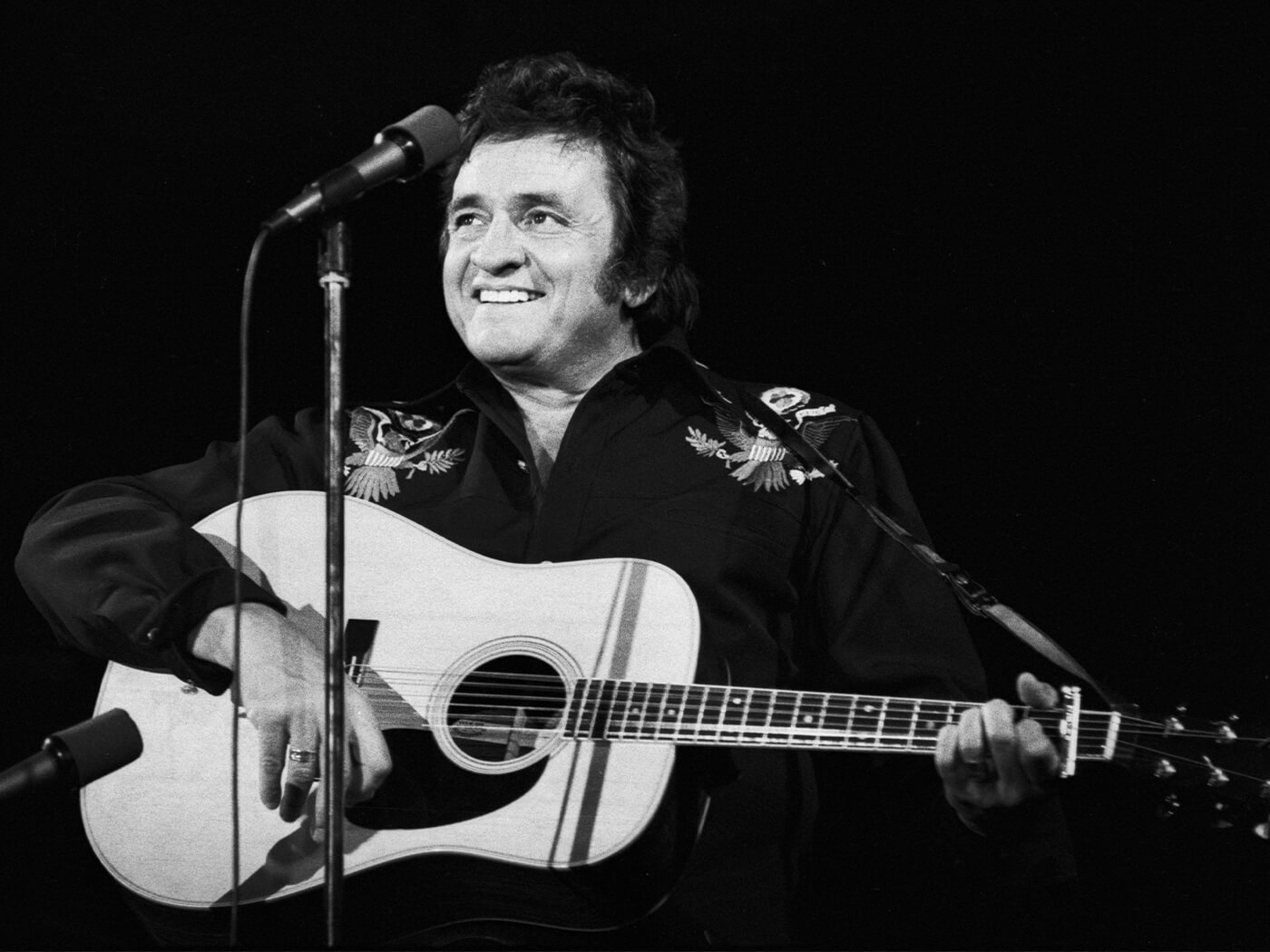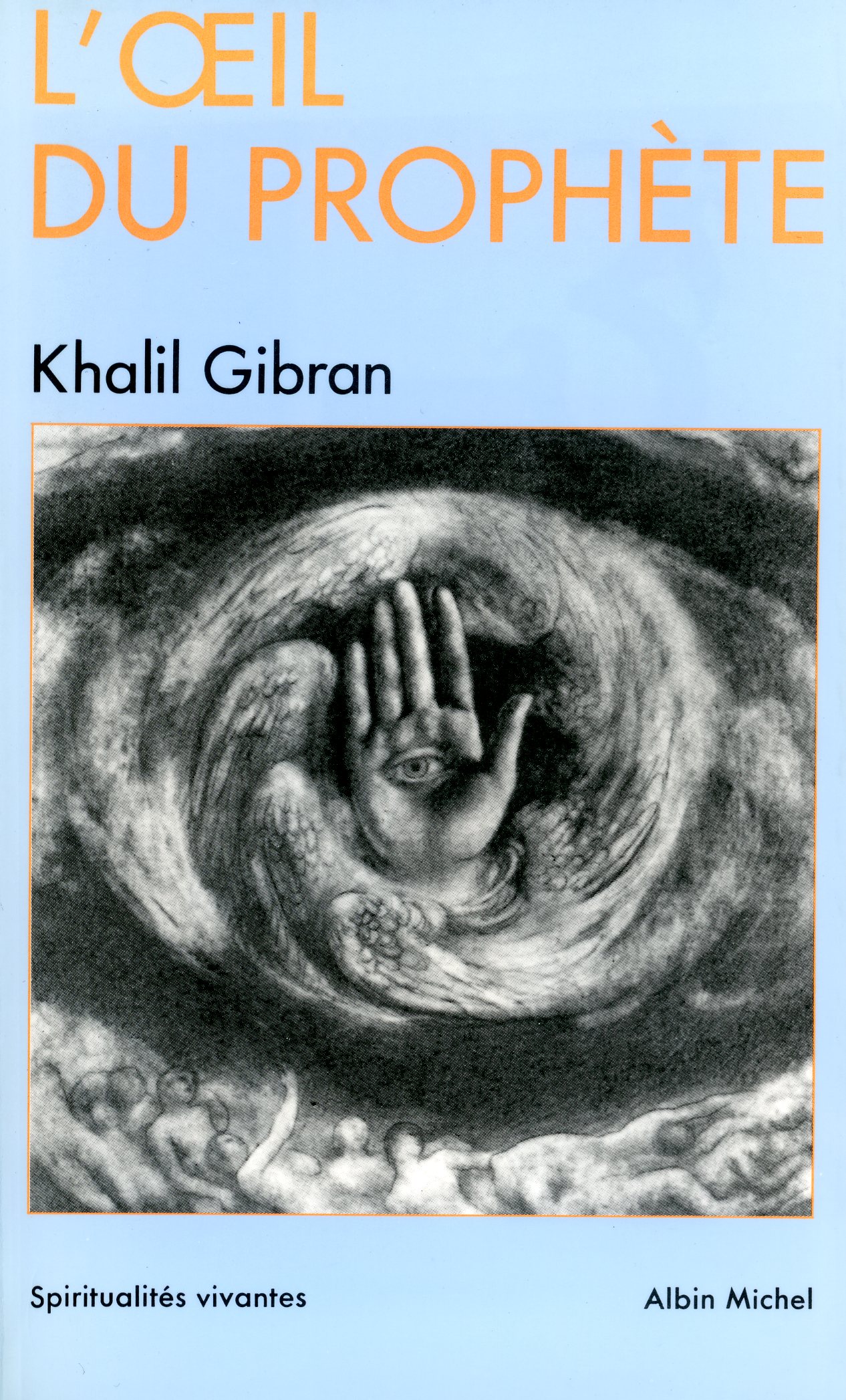-
-
-
-
Search
-
-
0
-
Shopping Cart
xProducts:0Cart Empty
-
by Philippe Maryssael, retired translator and terminologist, translator of Kahlil Gibran and contributor to the Kahlil Gibran Collective.
Arlon, Belgium, July 29, 2022.
John R. Cash (February 26, 1932 – September 12, 2003) is one of the best-selling music artists of all time, having sold more than ninety million records worldwide. His genre-spanning music embraced country, rock and roll, rockabilly, blues, folk, and gospel sounds. This crossover appeal earned him the rare honour of being inducted into the Country Music, Rock and Roll, and Gospel Music Halls of Fame. His music career was dramatized in the 2005 biopic Walk the Line.

Quite extraordinarily, Johnny Cash recorded the texts from Kahlil Gibran's book The Eye of the Prophet as an audio book for Audio Literature in San Bruno, California, in 1996. At that time, the recording was made by arrangement with Frog, Ltd, and was sold as an audio cassette with music accompaniment composed by the following musicians from Nashville: David Ferguson, Mark Howard, Kenney Malone, and Atone Silverman.

On the back of the cassette case, the comments read as follows:
Johnny Cash is a living legend in the world of popular music. He has won seven Grammy Awards and twenty-three BMI Songwriting awards and has recorded with an eclectic array of musicians from Jerry Lee Lewis to Tom Petty and the Heartbreakers. Johnny Cash has a great love for Gibran's work and agrees with the publisher that these never-before-translated-into-English writings are among Gibran's best.
Lebanese poet Kahlil Gibran is known the world over for The Prophet. At last, a worthy companion to his well-loved poem is available. The Eye of the Prophet is a startling new collection of Gibran's writings, translated from the original Arabic into French and now into English. Our ordinary life and labor are inherently noble, he believes, if only we act in concert with the sublimity of nature's creations. He writes of youth, love, marriage, and truth, and plumbs the depths of nationalism, religion, and spiritual growth. Gibran skillfully weaves Christian, Moslem, and Buddhist ideals into a great spiritual tapestry chat transcends cultural divisions.
The Eye of the Prophet, the book that Johnny Cash read from, was published by Souvenir Press Ltd in London and Canada in 1995.

The comments on the rear cover of the book are as follows:
The perfect companion to Khalil Gibran
The Prophet is known and loved by people around the world, as an inspirational guide to everyday life it has become a source of strength to millions. The Eye of the Prophet draws from Gibran's prose, poetry and letters to provide an illuminating selection of Gibran's reflections that enlighten and help at times of stress.
As in his other books the author blends Christian, Muslim and Buddhist ideas into a spiritual unity that will transcend all cultural and religious divisions. His is a lyrical poetic voice that embraces both Western and Eastern philosophy, expressing the spiritual uniqueness of his thoughts with eloquence and wisdom.
Addressing his great themes of love and spiritual wisdom with sublime imagery Gibran reveals new insights into daily life and the mystical meaning of his message to the world.
It is noteworthy that, on the book's cover, Gibran's first name is not spelled Kahlil as has been customary in English ever since the publication of his first book in English, The Madman, by Alfred A. Knopf back in 1918, but Khalil like it is written in French, a transliteration of his name in the Arabic language.
The texts from the book are translations by Margaret Crosland from the book in French L'Œil du Prophète that was compiled by Jean-Pierre Dahdah, the Lebanese biographer of Gibran and the translator of his English and Arabic books.

The comments on the back cover of L'Œil du Prophète read:
Pour réaliser cette anthologie, Jean-Pierre Dahdah a recherché dans toute l'œuvre de Khalil Gibran, en anglais ou en arabe, ainsi que dans sa correspondance, les joyaux de sa pensée, les passages fulgurants, les textes éclairants, les maximes et adages utiles à notre existence et à notre réflexion.
Cette sélection est articulée selon le plan même de son chef-d'œuvre, Le Prophète, afin de rester proche des thèmes chers au poète, thèmes majeurs qui l'ont fasciné toute sa vie durant.
Ce recueil nous propose donc les textes essentiels qui nous permettent de mieux comprendre l'originalité profonde de l'inspiration de Khalil Gibran.
Translated into English, these comments mean :
In order to produce this anthology, Jean-Pierre Dahdah has searched through Kahlil Gibran's work, in English and in Arabic, as well as through his correspondence, for the jewels of his thoughts, the dazzling passages, the enlightening texts, the maxims and sayings that are useful for our existence and our reflection.
This selection is articulated according to the plan of his masterpiece, The Prophet, in order to remain close to the themes dear to the poet, those major themes that fascinated him throughout his life.
This collection thus offers us the essential texts that help us to better understand the profound originality of Kahlil Gibran's inspiration.
Jean-Pierre Dahdah's compilation contains no fewer than 144 texts that he translated into French from English and Arabic sources. In the English book The Eye of the Prophet, Margaret Crosland selected only those texts that were originally written by Gibran in his mother tongue, Arabic, leaving out all of Jean-Pierre Dahdah's selections from the English books by Gibran, thus making The Eye of the Prophet a thinner book with 75 excerpts.
De la Sagesse
Apprenez les paroles de sagesse prononcées par les sages et appliquez-les dans votre vie. Vivez-les, mais ne les déclamez pas, car quiconque répète ce qu'il n'a pas compris est aussi inutile qu'un âne chargé de livres.
(French translation from the Arabic by Jean-Pierre Dahdah)
Winsdom
Learn the words of wisdom uttered by the sages and apply them within your life. Live them out, but do not declaim them, for whoever repeats what he has not understood is as useless as a donkey laden with books.
(English translation from the French by Margaret Crosland)
For today's audience, The Eye of the Prophet is available on the Audible platform.
Sources:Philippe Maryssael was born in Brussels, Belgium, in 1962. He studied translation in Brussels in the early 1980s. He later studied terminology and terminotics, the set of techniques involving the use of computer software in conducting terminology research on vast text corpora and deploying terminology database and translation memory solutions in support of the translation business.
His first job was as a bank clerk in Brussels. After a couple of years, he became a professional translator and terminology pioneer in the insurance and financial sectors before he moved to Luxembourg and joined a European financial institution as a translator-reviser, terminologist, and computer-aided translation and terminology tools specialist. There, after a decade, he changed the course of his career and became a business process manager involved in paving the way to the institution-wide dissemination of business process optimization and re-engineering practices.
In July 2017, he decided to retire. The time was right for him to indulge in his life-long interest in the writings of Kahlil Gibran. He started collecting first editions of the books that Gibran wrote in English. He also started comparing the numerous French translations of his works. The natural next step was his intention to provide personal translations of Gibran’s English books into French and to have them published. His first published work came out at the end of 2018: Le Fol, a bilingual presentation of the text of The Madman and his new translation, with an in-depth analysis of Gibran's use of the English language and a study of several themes across his entire body of books.
In February 2020, Philippe Maryssael published his second book by Gibran, Le Sable et l'Écume, translated into French from Sand and Foam (1926). His third book, Le Prophète, from Gibran's masterpiece The Prophet, has been available since December 2020.
In December 2021 and February 2022 respectively, Philippe Maryssael's fourth and fifth books, Le Prophète (as a limited-edition, monolingual print with white lettering on a black background), and Le Précurseur (The Forerunner, as a bilingual edition) were published.
More information on Philippe Maryssael and his translation projects can be found on his personal website at http://www.maryssael.eu/en/.
Philippe Maryssael also maintains a new website dedicated to Kahlil Gibran. Focussing on his personal translations into French of Gibran's books, the site is at http://www.khalilgibran.eu/.